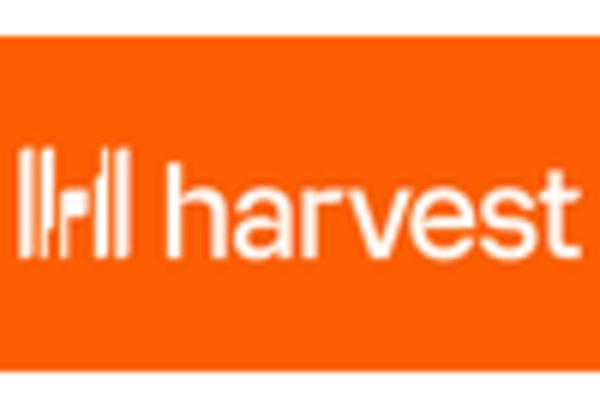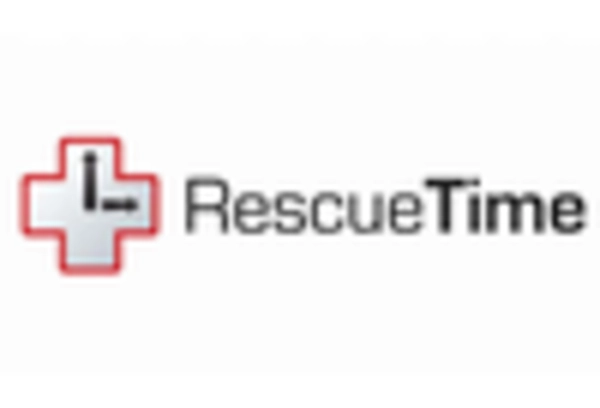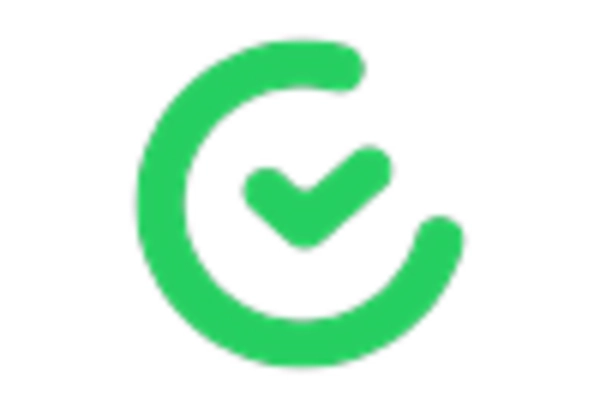Market Trends
Key Emerging Trends in the Time Tracking Software Market
The Time Tracking Software market is experiencing distinct trends that are reshaping the way businesses manage their time-related processes. One prominent trend is the increasing adoption of mobile time tracking solutions. With the rise of remote work and the prevalence of smartphones, employees are seeking flexible ways to log their hours and track tasks on the go. This trend has prompted software developers to prioritize mobile-friendly interfaces and intuitive apps, enabling users to manage their time seamlessly from their smartphones or tablets. As the workforce becomes more mobile, the demand for such accessible solutions is expected to rise. Another significant trend is the integration of advanced analytics and reporting capabilities within time tracking software.
Businesses are no longer satisfied with basic timekeeping functionalities; they now seek software that provides comprehensive insights into employee productivity, project timelines, and resource allocation. Analytics features offer decision-makers the ability to identify trends, forecast project outcomes, and optimize workflows. This trend aligns with the broader shift towards data-driven decision-making in the business world, as organizations increasingly recognize the value of extracting actionable intelligence from their time tracking data. The market is also witnessing a surge in demand for integrations with other business tools. Time tracking software is no longer seen as a standalone application but rather as a crucial component of an interconnected business ecosystem. Integrations with project management tools, accounting software, and customer relationship management (CRM) systems are becoming standard expectations. This trend allows for seamless data flow across different business functions, reducing manual data entry and improving overall operational efficiency. AI and ML are making a significant impact on the time tracking software market.
These technologies are being leveraged to automate repetitive tasks, enhance accuracy, and provide intelligent insights. Predictive analytics, for instance, can help businesses anticipate potential delays in projects, enabling them to take proactive measures. As AI and ML capabilities continue to evolve, their integration into time tracking solutions is likely to become more sophisticated, further streamlining processes and improving the user experience. The emergence of customizable and scalable solutions is also a notable trend in the market. Businesses vary widely in size, structure, and industry, and their time tracking needs reflect this diversity. Recognizing the importance of catering to these unique requirements, software providers are offering solutions that can be tailored to specific business workflows. Scalability is equally crucial, as businesses want software that can grow with them. Whether a small startup or a large enterprise, organizations seek time tracking solutions that can adapt to their evolving needs without requiring a complete overhaul of their systems.
Moreover, environmental sustainability is gaining prominence as a trend in the Time Tracking Software market. Businesses are increasingly aware of their carbon footprint and the impact of their operations on the environment. As a result, they are seeking software solutions that promote eco-friendly practices. Cloud-based time tracking solutions, which reduce the need for physical infrastructure and allow for remote work, align with this trend by contributing to a more sustainable and environmentally conscious approach to business operations.


















Leave a Comment